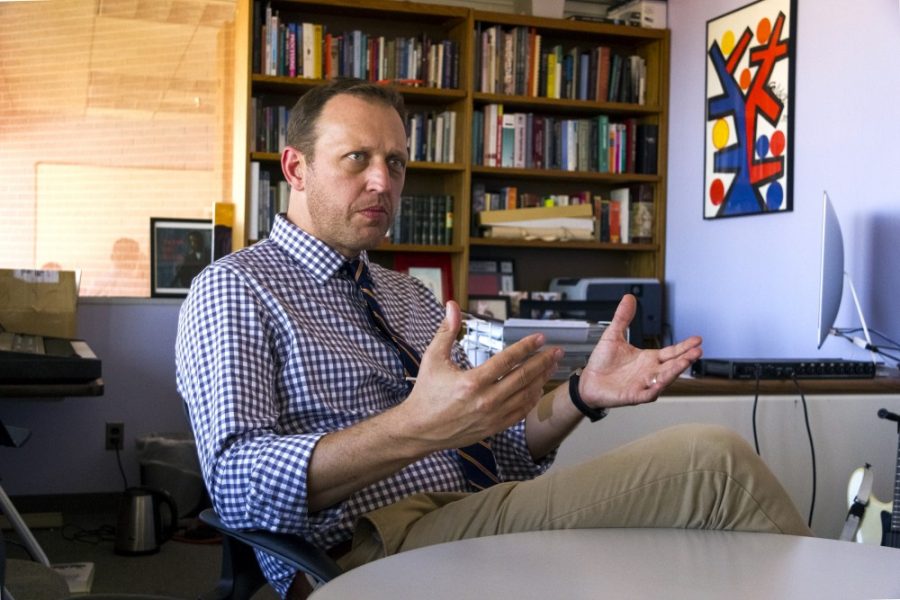A jazz-playing robot has jump-started the new UA School of Information. Kelland Thomas, professor and associate director of the iSchool, has just started a research project which aims to test artificial intelligence in the form of a jazz-playing robot.
The five year project, dubbed Music Improvising Collaborative Agent, or MUSICA, has just been funded by a $2.3 million grant from the Defense Advanced Research Projects Agency. MUSICA aims to create artificial intelligence that has the capability to collaborate with humans in real time.
Thomas, who used to teach for the UA School of Music wanted to combine two of his expertise into one. “This project did really kind of combine two areas of my intellectual passions, it involves artificial intelligence and machine learning, but it also brings in my love of music and creative behavior,” Thomas said. “The idea was to use my background as a musician to try and help train or program a machine.”
The computer, which will have a database of jazz solos, will be able to draw from those and in real time, listen to a human soloist and given the contextual information it is receiving to make decisions on what to do musically.
“The idea is to get the computer to behave in a way that we would recognize as creative,” Thomas said.
While the goal of the program is to create jazz in real time, long term MUSICA could bring a new era of human-computer interactions. The team’s goal is to have computers be meaningful collaborators with humans, rather than assistants.
Computers need users to learn how to operate them, but Thomas is aiming to create a computer that can learn how to communicate in natural language with a human being. The hope is that computers can provide feedback based on their surroundings and be utilized not only creatively as a jazz musician, but as a problem solver.
Giving a machine the ability to adapt swiftly given its surroundings, and intelligently making a decision in response to a problem, are the key elements Thomas is researching to create more intelligent collaborative computers.
More research like MUSICA is in the works at the school of information. The iSchool focuses on research in interdisciplinary information science, including artificial intelligence, data management and computer-mediated learning and library sciences.
In a more technologically reliant world, the iSchool’s goal is to break down barriers between humans and computers.
Catherine Brooks, director of undergraduate studies for the school of information, currently studies students in learning contexts, people seeking support online and related social practice and behavior.
Brooks says the school hopes to work with large interdisciplinary and collaborative research teams in the future. This includes research in social media behavior and large-scale disasters, high performance computing for uses in politics and business, and internet behavior and online social practices such as eCommerce and consumer behavior.
“Overall, faculty in our new school focus on issues of mediated contemporary life,” Brooks said. “Information, data, human protections, publishing practices, computational art and other issues tied to this digital age.”
Follow Bailey Bellavance on Twitter.









